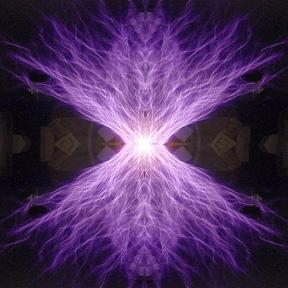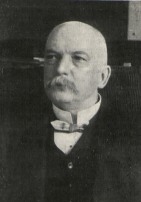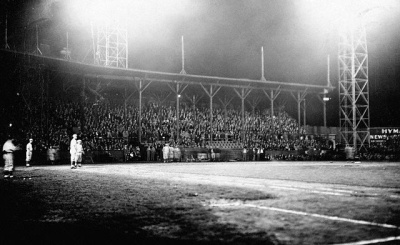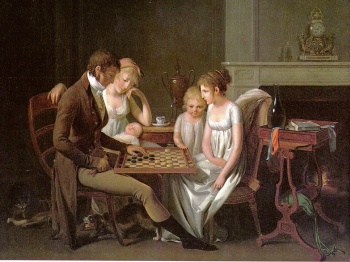The World of Marvin J. Mavin

The world of Marvin J. Mavin is known, in science fiction terms, as a parallel universe or an alternative reality. It's a fictional world; a world of what might have been had history taken a slighty different course than it did in this world of ours.
In Marvin's world, history is indeed pretty much as we know it, with just one difference: checkers rose to prominence as America's number one pastime and favorite sport. Sometime in the 1800s, something new called professional baseball made a try at national prominence, with some success; but a movement led toward the end of the century by one Harvey H. Hopkins of Chicago turned the tide.
 Harvey Hopkins,Checkerist and Pedant
Harvey Hopkins,Checkerist and Pedant
Mr. Hopkins, always a bit of a pedant and a purist, thought baseball games were a bad thing and led to all manner of evil, with children sometimes turning to a life of crime due to its evil influence, the cost of tickets to a ball game, and the time spent away from home and hearth while attending said ball games, particularly games played - perish the thought - at night, under the glare of the artificial electric light.
Mr. Hopkins' views got a great deal of attention from that day's equivalent of the religious right, and his promotion of checkers as an alternative caught the national mood. While baseball continued as a popular sport, checkers eclipsed it-- but in the end, not in the manner that Mr. Hopkins had promoted and would have hoped, and not even for the reasons he had in mind.
Hopkins saw checkers as a means of character development, and as a game played at home by the boys while the girls sewed and the ladies cooked. He thought that this would create and preserve a highly desirable family environment and lead children to a righteous life, free of the unspeakably harmful influence of baseball and artificial lighting.
But, alas, it didn't turn out that way. In comparing checkers with baseball, Mr. Hopkins drew attention to both. Checkers benefitted from this publicity simply because, at the time, it was the lesser played sport. But then people began to realize that checkers was the great democratic game that baseball was not: everyone could play checkers, independent of age, gender, wealth, or status. Checkers was both a sport to observe and a sport in which to take part. The same was hardly true of baseball. And so checkers began its meteoric rise.
Checkers became so incredibly popular that it was played literally everywhere and by everyone. To Mr. Hopkins horror, girls put down their needles and thread, ladies put down their cook pots, and they all played checkers--- right along with the boys, of all things!
And then the inevitiable happened.
Professional checkers developed along the lines of baseball, with organized teams at all levels, leagues, championships, star players, and big-money contracts. Professional checkers soon eclipsed professional baseball, and, wouldn't you know it, the price of admission to a checker match became at least as high if not higher than the cost of a baseball ticket. Not only that, but some checker matches started to be played at night in large stadiums--- under the artificial electric light!
Though invariably caught and punished, children in big cities, such as Mr. Hopkins' home town of Chicago, would skip school in order to go to an particularly important checker match. This was especially true during the World Series of Checkers, a time in April during which the eyes of the nation were on little else but checkers.
Mr. Hopkins had, in modern terms, gotten what he wished for, and lived to regret it. There was no stopping the flow of events. As the decades passed, professional checkers in the United States grew and grew. An elaborate farm team system, in which new, young professionals would work their way up, from semi-pro to A, from AA to AAA and eventually to the Big Leagues, came into being with a professional checker team of some sort in every city and town of any size all across America.
Checkers in the schools became all the rage as well. From the smallest country school to the largest high school and university, each and every one had their checker team and students vied for the honor of playing Varsity Checkers. The Captain of the Checker Team was the star of his or her high school and had his or her pick of Saturday-night dates, and was a natural to lead off the School Prom.
Baseball and football, while popular, never again stood a chance against the checker mania that swept America and even edged into other parts of the world, especially Great Britain, Japan, and Latin America.
That became the world of Marvin J. Mavin, captain of the Detroit Doublejumpers in the American Conference, Central Division, of the National Checker League.
 Marvin J. MavinCaptain, Detroit Doublejumpers
Marvin J. MavinCaptain, Detroit Doublejumpers
That became the world of young lads such as Tommy, vying for a place on the Varsity Team of his elementary school somewhere in central Florida.
That became the world of lesser, yet still talented players, such as Johnny Jack Jackson, who never made it higher than Single A play, but still had a love for the game that long outlasted his brief professional playing days.
And that is the world about which we sometimes write in our Checker Maven columns. It is a world that does not exist in the time continuum which we inhabit; but there is no denying that it would be a marvelous and interesting world indeed.









